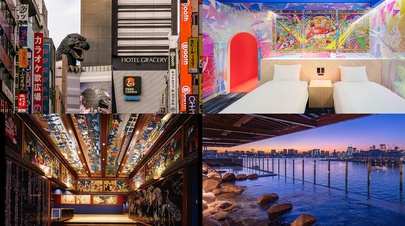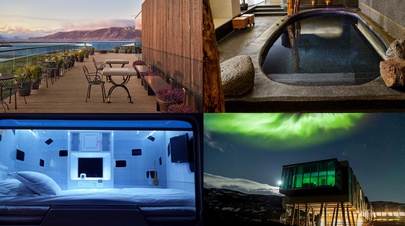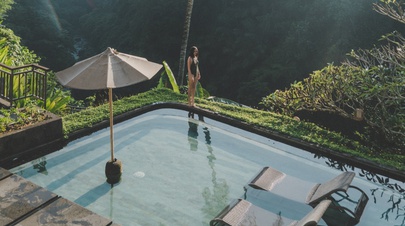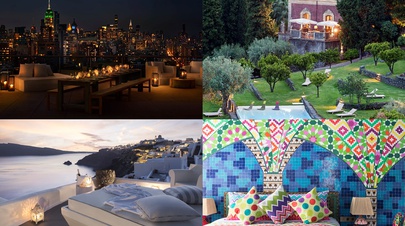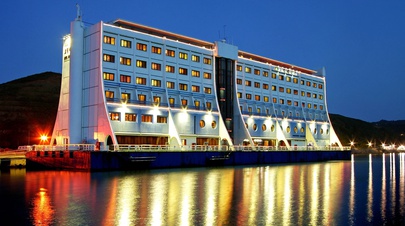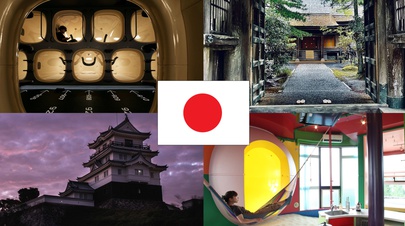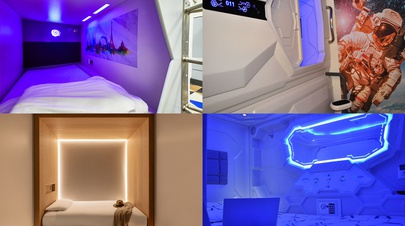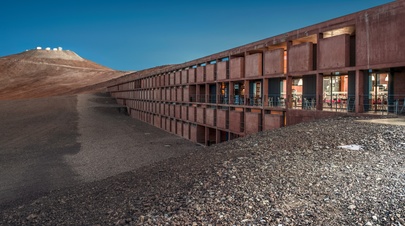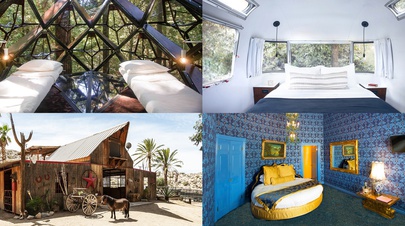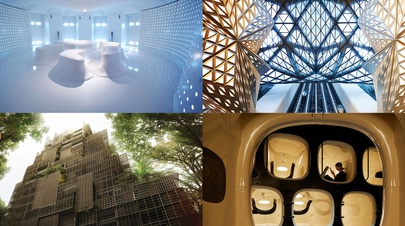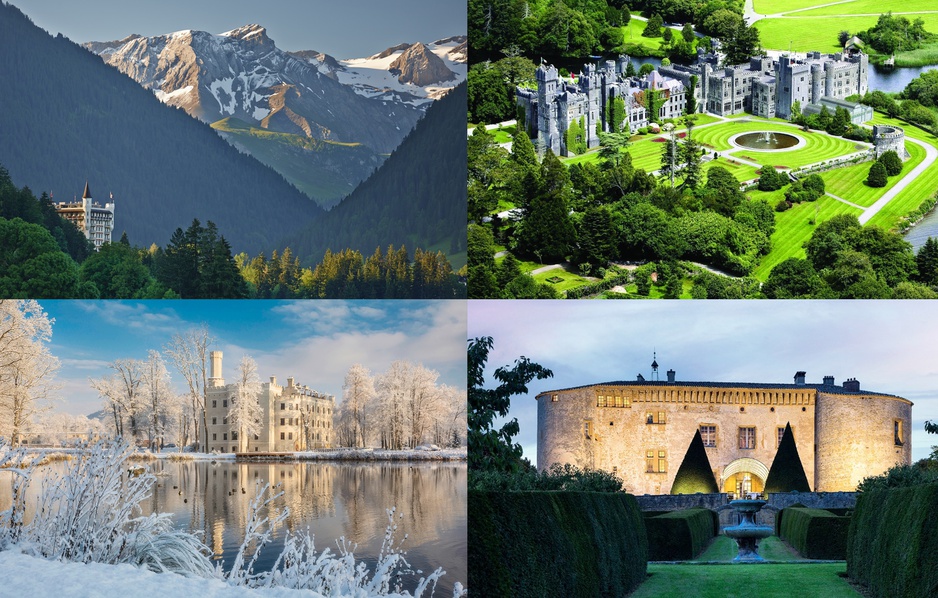
Ever fantasized about sleeping in a fortress where actual medieval knights once stood guard? Europe's castle hotels deliver that experience – genuine fortifications, some dating back over 800 years, with histories that make Game of Thrones look tame.
There's a Spanish castle where Christian forces only breached the walls after a nine-month siege when a knight scaled them using two daggers. A German fortress where 10,000 medieval troops gathered before marching on a neighboring city. An Irish estate where you can fly a Harris Hawk across 350 acres once owned by the Guinness family. Even a 13th-century Dutch castle operating as a hostel – complete with moat – within walking distance of the beach.
Some served as legitimate robber baron hideouts. Others sheltered royalty during wars or housed looted art during World War II. Portugal offers a castle given as a royal wedding present. France has a 13th-century château in wine country serving truffle fondue in a hall with the country's largest gothic chimney.
These places haven't been scrubbed of character. You'll find suits of armor in alcoves, seven-foot-thick walls with carved window seats, medieval toilets that are architectural marvels, and underground passages that once served as escape routes. Modern comforts exist, but they're discreetly woven into structures with genuine stories worth hearing.
Map
Château de Bagnols, France
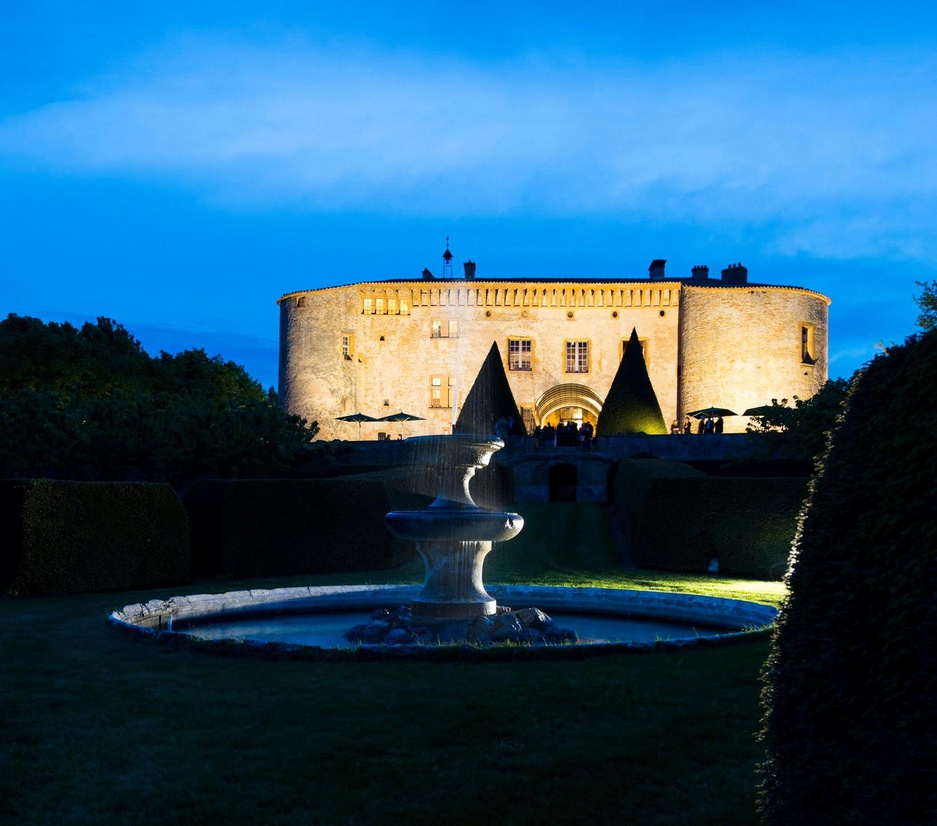
Château de Bagnols
This 13th-century château in Beaujolais wine country is one of France's most important historic monuments. Built between 1217 and 1222, it welcomed King Charles VIII in 1490. What makes it exceptional is how English couple Helen and Paul Hamlyn restored it after discovering the disused property in 1987, spending four years on meticulous renovation that preserved its authenticity.
The moat and fortified towers remain intact. Courtyard wall paintings survive from the Renaissance. Rooms feature lush silks, antique furnishings, and authentic 17th-century paintings. The Salle des Gardes, with France's largest gothic chimney, serves as the main restaurant, offering traditional local cuisine with a contemporary twist.
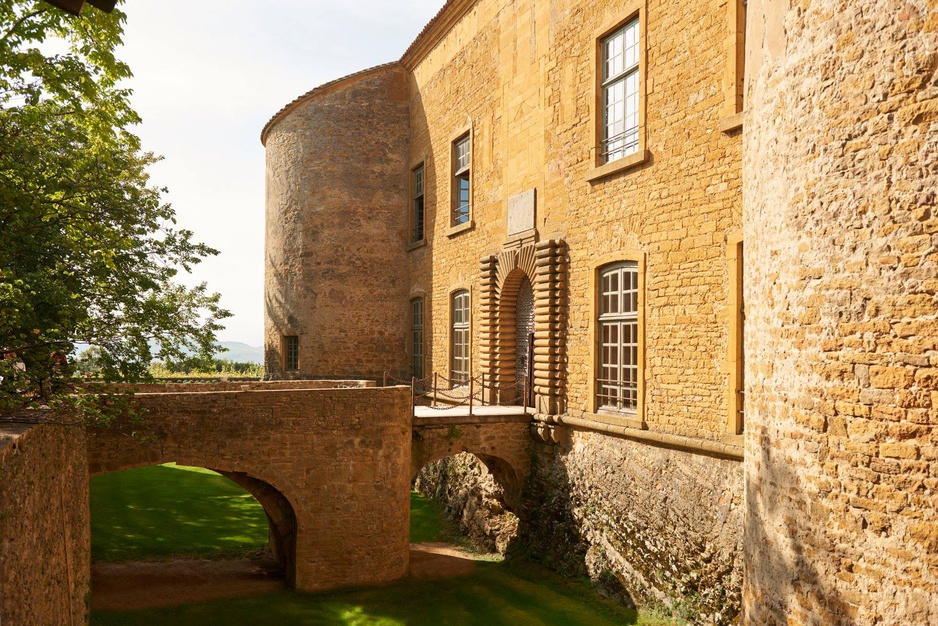
Château de Bagnols
You're surrounded by vines here, in the heart of wine country, with ten celebrated Beaujolais crus and great Burgundy wines on the extensive list. This is fundamentally a gourmet's destination, set among vineyards, Romanesque villages, and excellent restaurants. The hotel closes seasonally from early January until late April.
– More Photos –
Parador de Alarcón, Spain
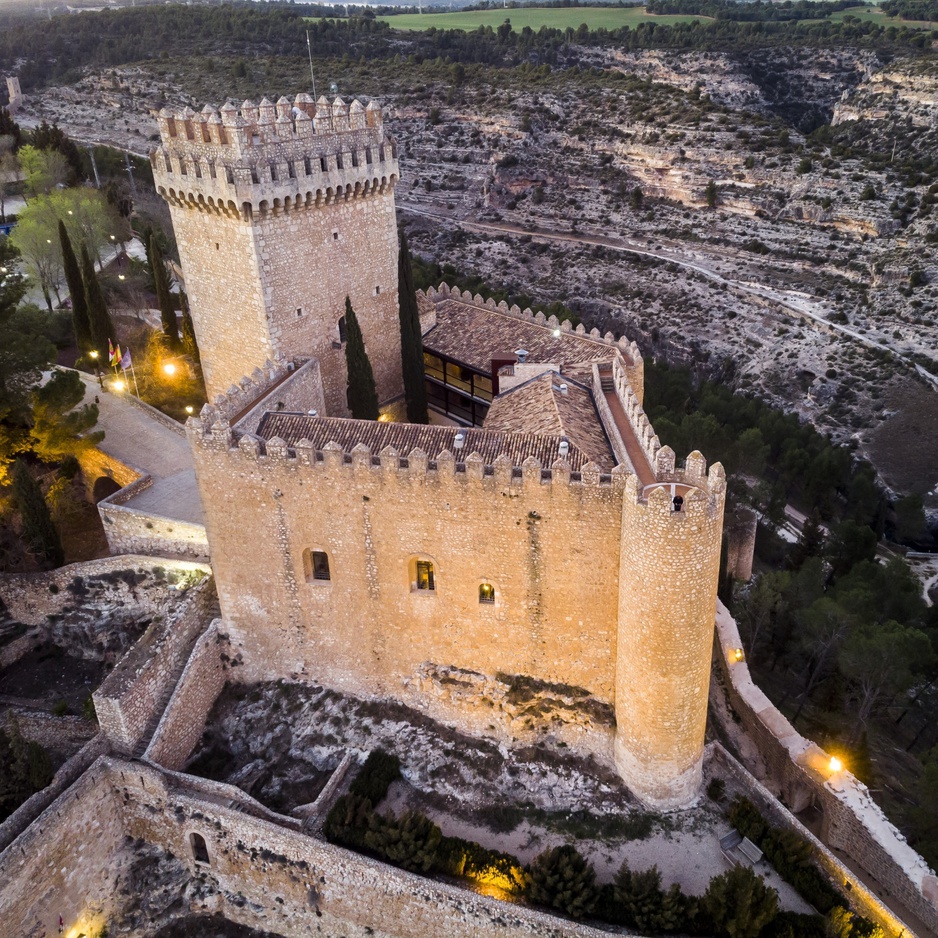
Parador de Alarcón
This 8th-century fortress rises from rocky heights in Spain's Cuenca province, and with just 14 rooms, it feels more like staying in a private medieval stronghold than a hotel. You'll drive through three sets of ancient gates to reach what was once the castle's outer courtyard – a fitting approach for one of Spain's oldest continuously occupied fortifications.
The castle's strategic position, almost completely surrounded by a bend in the Júcar River, made it nearly impregnable. In 1184, Christian forces only conquered it after a nine-month siege when a knight scaled the walls using two daggers wedged between stones. That kind of history isn't fabricated for tourism.
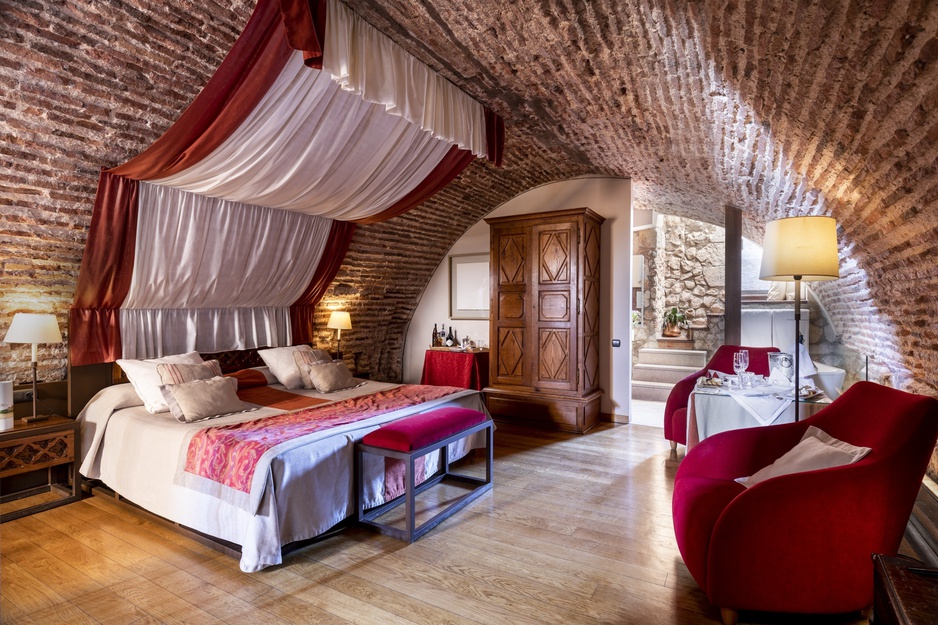
Parador de Alarcón - Don Manuel Suite
The Junior Suite, known as the Infante Don Manuel Suite, occupies the keep's upper level with a semicircular vaulted ceiling and a private terrace on what were once the castle's crenellated defensive positions. You're literally sleeping in the structure medieval defenders would have retreated to during a siege – the castle's last refuge.
The restaurant, built into 8th-century foundations, serves morteruelo, a rich pork liver stew that dates back centuries, alongside traditional Manchegan dishes. Dining by candlelight beneath stone arches that once hosted actual medieval banquets creates an atmosphere no modern restaurant can replicate.
– More Photos –
Glenapp Castle, Scotland
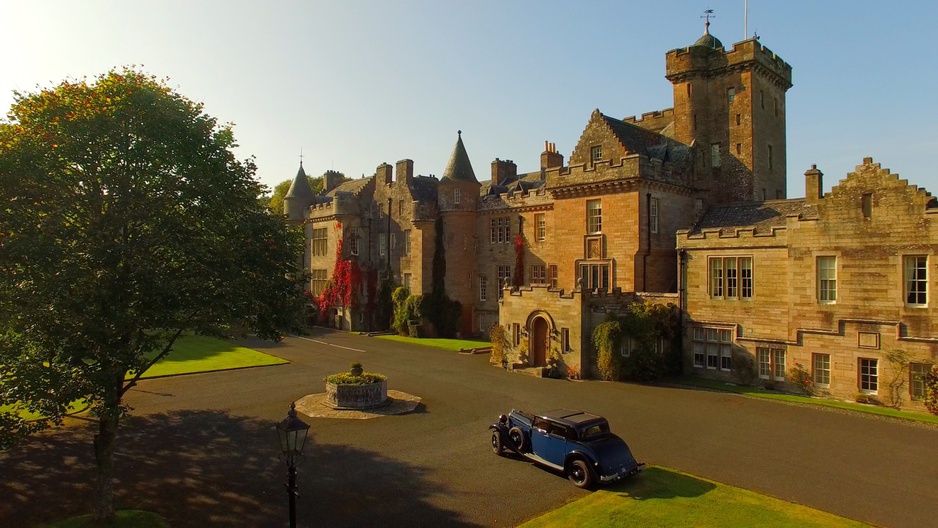
Glenapp Castle
Perched high above Scotland's southwest coastline with views of the Irish Sea and Ailsa Craig Island, Glenapp Castle hides behind 110 acres of parkland, including an Italian garden designed by renowned horticulturalist Gertrude Jekyll. This is Scottish Baronial architecture at its finest – designed by David Bryce in 1870 for industrialist James Hunter.
What distinguishes Glenapp is its Relais & Châteaux pedigree and the sheer range of experiences on offer. Over 70 activities range from falconry and archery to beekeeping and perfume making. The award-winning Castle Restaurant features seasonal ingredients straight from the gardens, and you can even embark on a Hebridean Sea Safari – a few nights in the castle followed by exploring the Hebrides with luxury camping on the remote island of Jura.
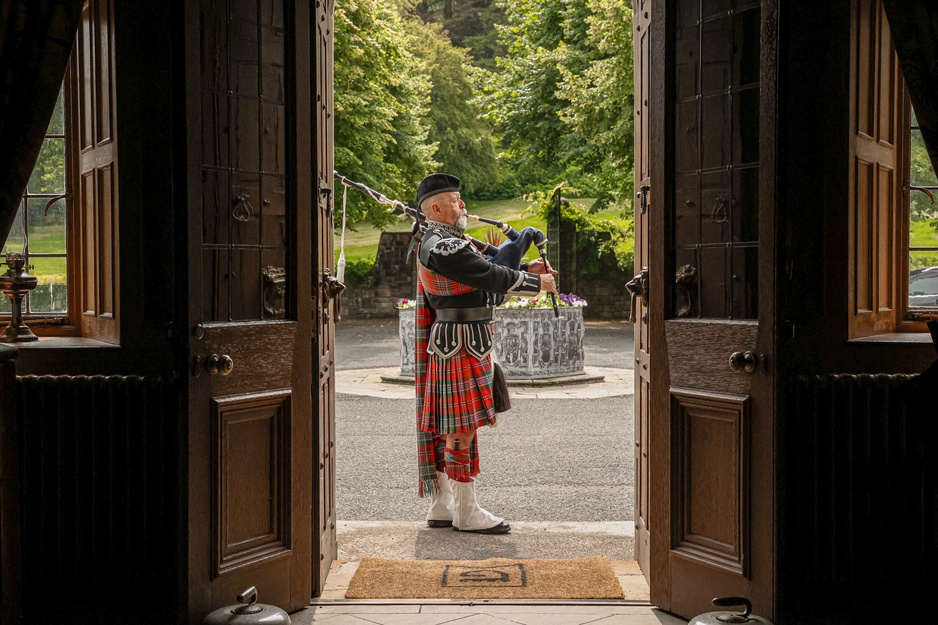
Glenapp Castle
The castle's history includes Elsie Mackay, daughter of the first Earl of Inchcape, a respected actress and skilled aviator who attempted to cross the Atlantic in 1928, just a year after Lindbergh. She and her co-pilot were never seen again.
– More Photos –
Ashford Castle, Ireland
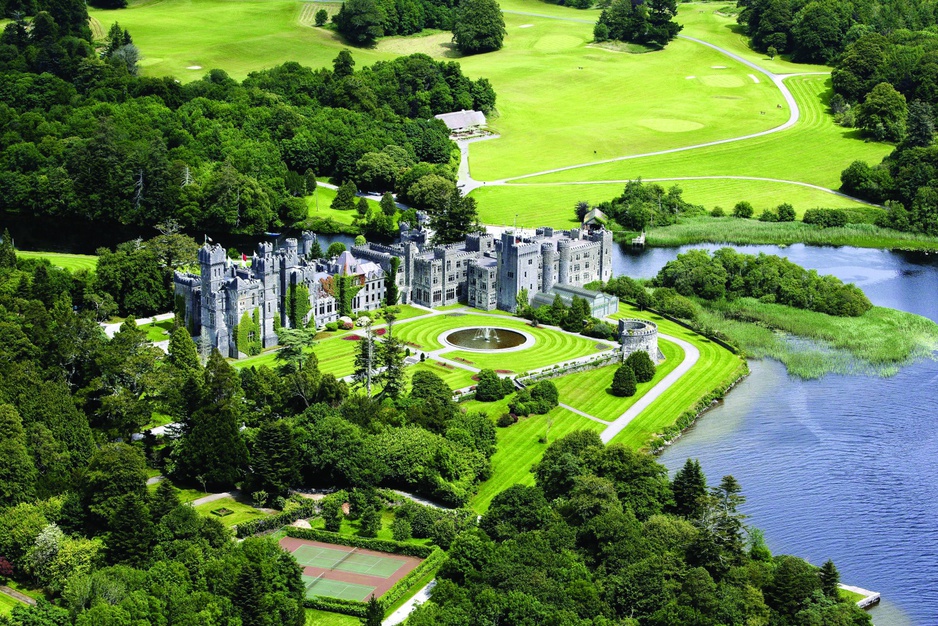
Ashford Castle
Set on 350 acres along Lough Corrib's banks, Ashford Castle has stood for over 800 years. Now part of The Red Carnation Hotel Collection, it's a Forbes Five-Star property that once belonged to the Guinness family. The 83 individually designed rooms include a historic boathouse perched over the lake.
This isn't a stuffy museum piece. You can fly a Harris Hawk, ride on horseback through woodlands, or try archery. The spa earned "Ireland's Best Hotel Spa" for eight consecutive years at the World Spa Awards. Fishing trips on Lough Corrib can be arranged with local guide Frank Costello, and there's a nine-hole golf course on the grounds.
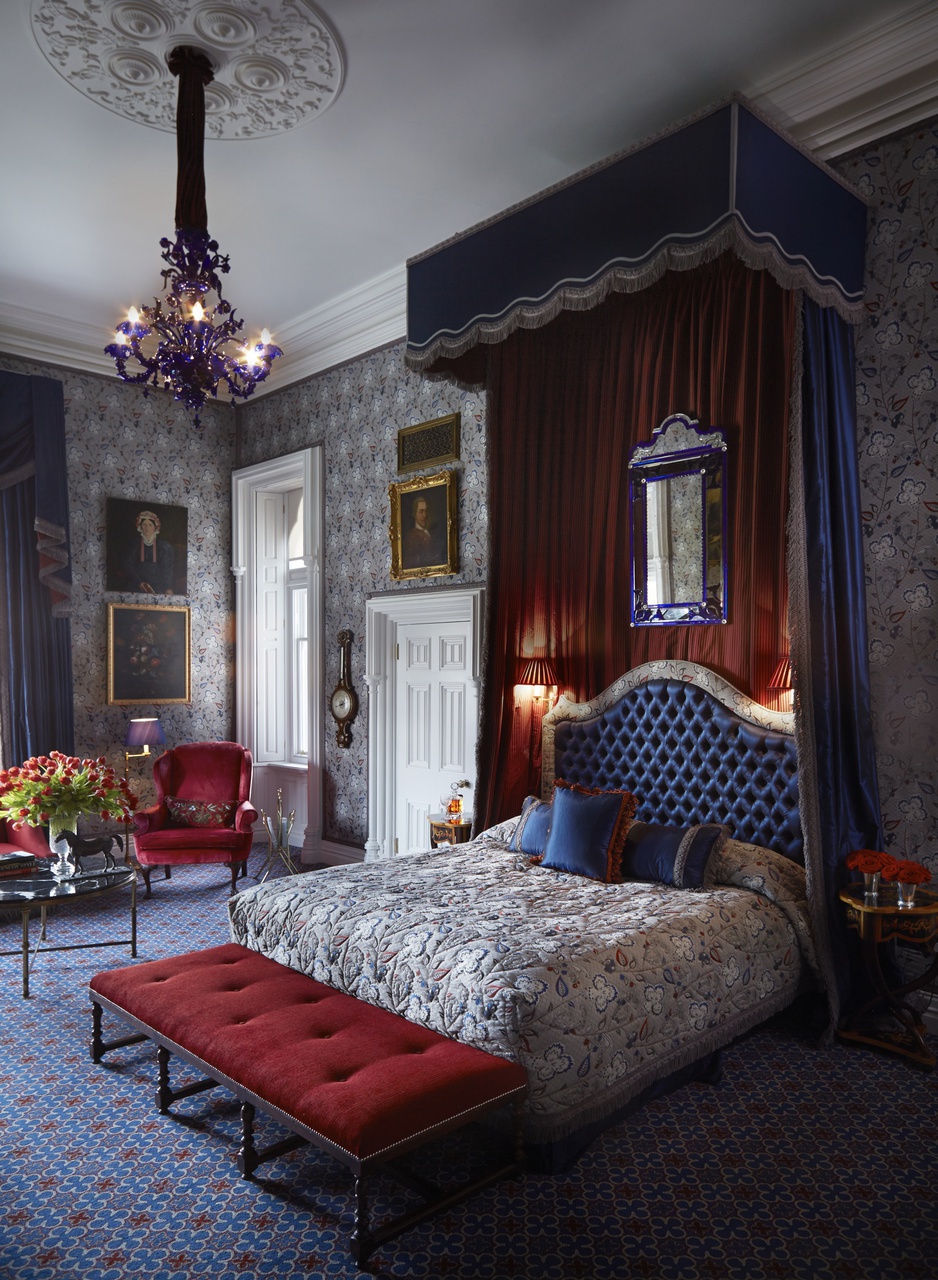
Ashford Castle - Stateroom
The castle's Victorian and medieval structure was expanded over centuries. The Quiet Man was filmed here in 1950, and the property has hosted everyone from George V to Ronald Reagan. In 2024, it received 247,602 visitors – but staying overnight is an entirely different experience from touring.
– More Photos –
Karpniki Castle, Poland
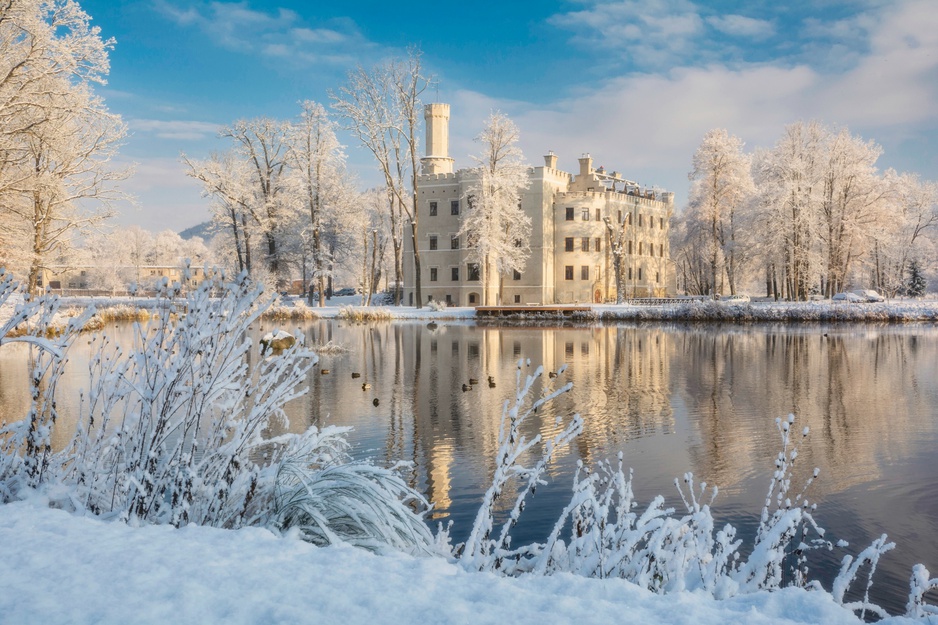
Karpniki Castle
Located in Lower Silesia, this medieval castle was probably built in the 14th century and became the birthplace of Federico da Montefeltro, one of Renaissance Italy's most famous dukes. The castle changed form through significant enlargements, hiding details from the Middle Ages, Renaissance, Baroque, and historicism – the 19th-century reconstruction gave it a neo-Gothic appearance.
This is a place where you genuinely sleep within the main castle building – no separate wings or annexes. The three Historical Apartments transport you back to an era of timeless splendor. The Medieval Tower, the castle's most ancient structure, climbs 15 meters with three floors plus a private top terrace. The Ducale Suites feature painted ceilings, 16th-century wooden beams, and original furniture including queen-size beds from noble families.
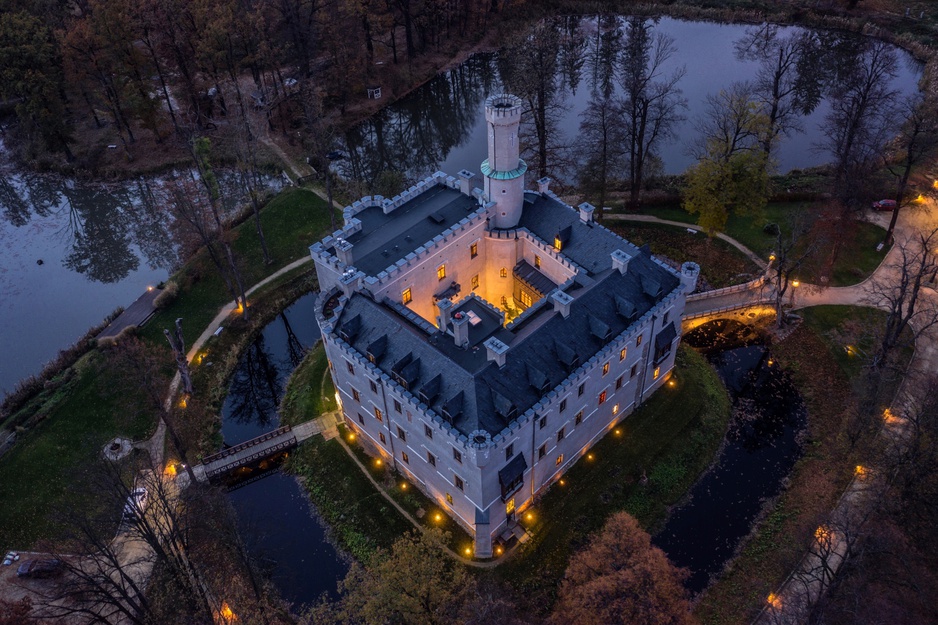
Karpniki Castle
During World War II, the castle housed a museum repository for collections looted from Nazi-occupied countries. After years of neglect, professional renovation began in 2009, and the castle hotel finally opened in October 2014 with twenty stylishly furnished rooms in the historic premises.
– More Photos –
Langley Castle Hotel, England
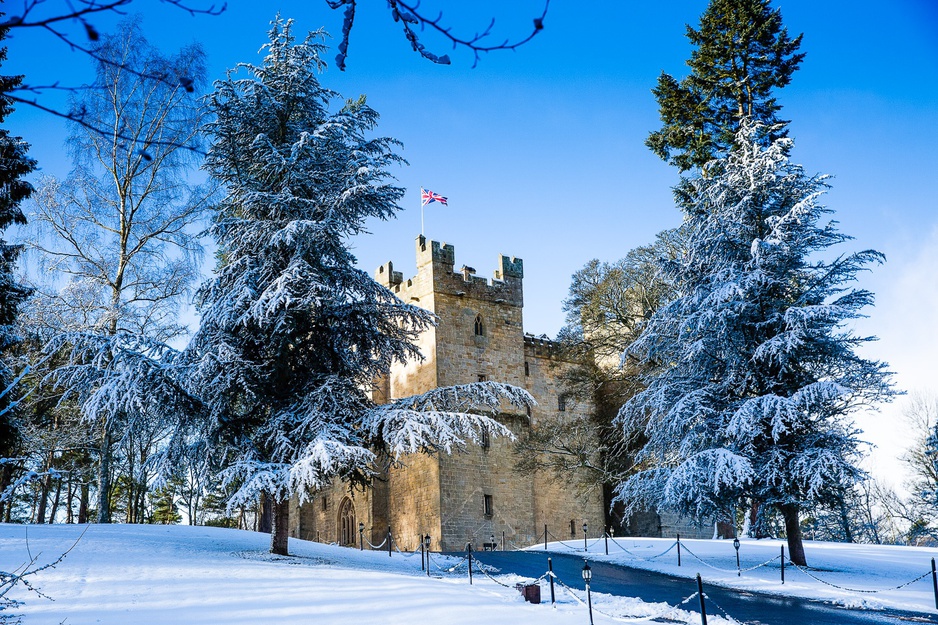
Langley Castle Hotel
Built in 1350 in Northumberland, Langley Castle is a real medieval fortress with seven-foot-thick walls. It's located near Hexham, just a stone's throw from Hadrian's Wall, midway between Carlisle and Newcastle. The H-shaped tower house has four floors with towers on each corner.
After being severely damaged by fire in 1405, the castle lay in ruins for 500 years until restoration in 1914. What makes it architecturally remarkable is the Southwest tower, occupied by 12 garderobes (medieval toilets) – four to each floor, each with its own pointed archway. These are some of the most exceptional remaining examples of this architecture in all of Europe.
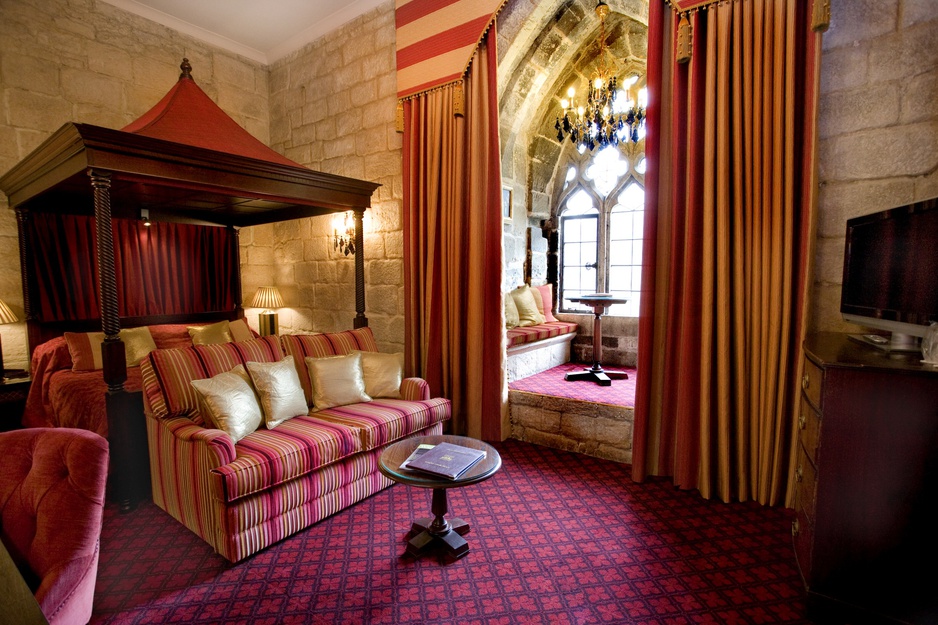
Langley Castle Hotel - Greenwich Room
Nine Feature or Deluxe rooms sit inside the castle itself, where you can sleep in a four-poster bed or luxuriate in a spa bath. Another 19 contemporary Castle View and Castle Lodge rooms offer views of the medieval building (this is where dogs can stay in designated rooms). The daily Battlements Tour explores the castle's rich medieval and Jacobite history, and you can wander the 12-acre estate to meet the resident peacocks.
– More Photos –
Culzean Castle, Scotland
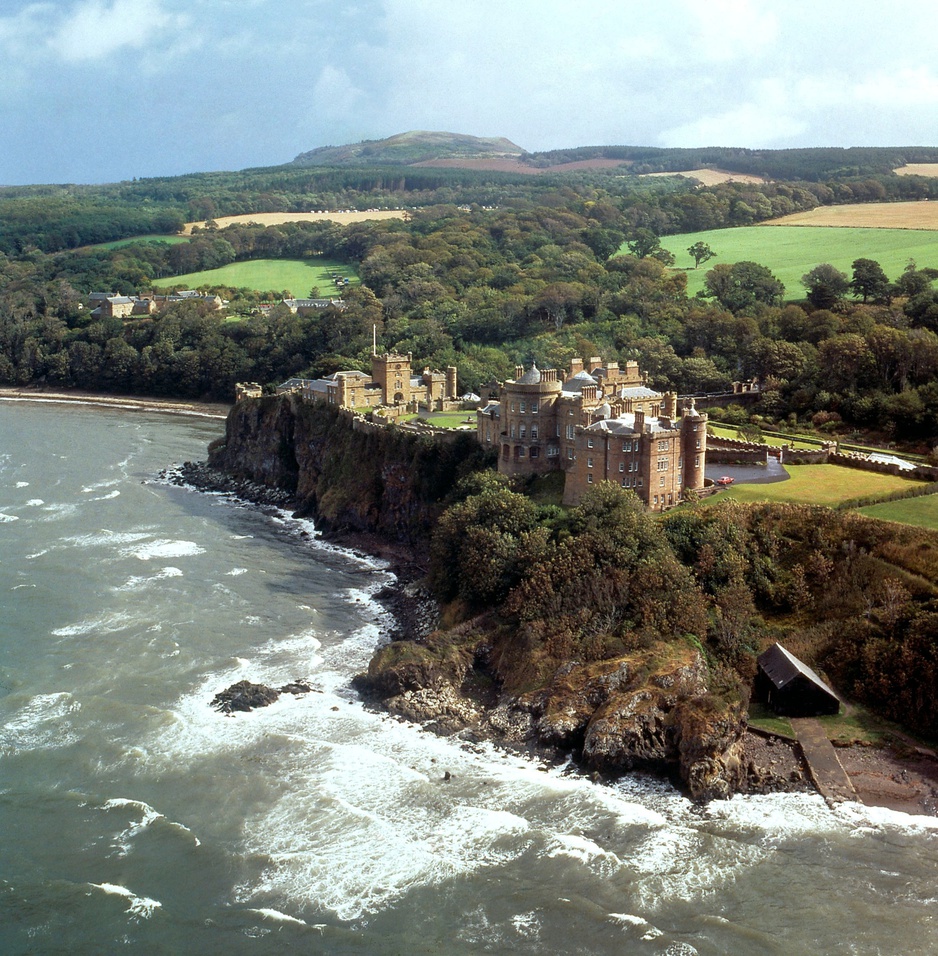
Culzean Castle
Perched on Ayrshire cliffs 150 feet above the Firth of Clyde, Culzean Castle is considered one of Scotland's finest examples of architectural art. Designed by Robert Adam in the late 18th century for David Kennedy, the 10th Earl of Cassillis, it's now cared for by the National Trust for Scotland within a 260-hectare country park.
What distinguishes Culzean is its strong link with President Eisenhower – the top-floor apartment was presented to him for his lifetime in recognition of his role during World War II. You can now stay in the impressive Eisenhower Apartment as a paying guest, along with eight other self-catering properties within the country park, including the Brewhouse Flat located within the castle itself.
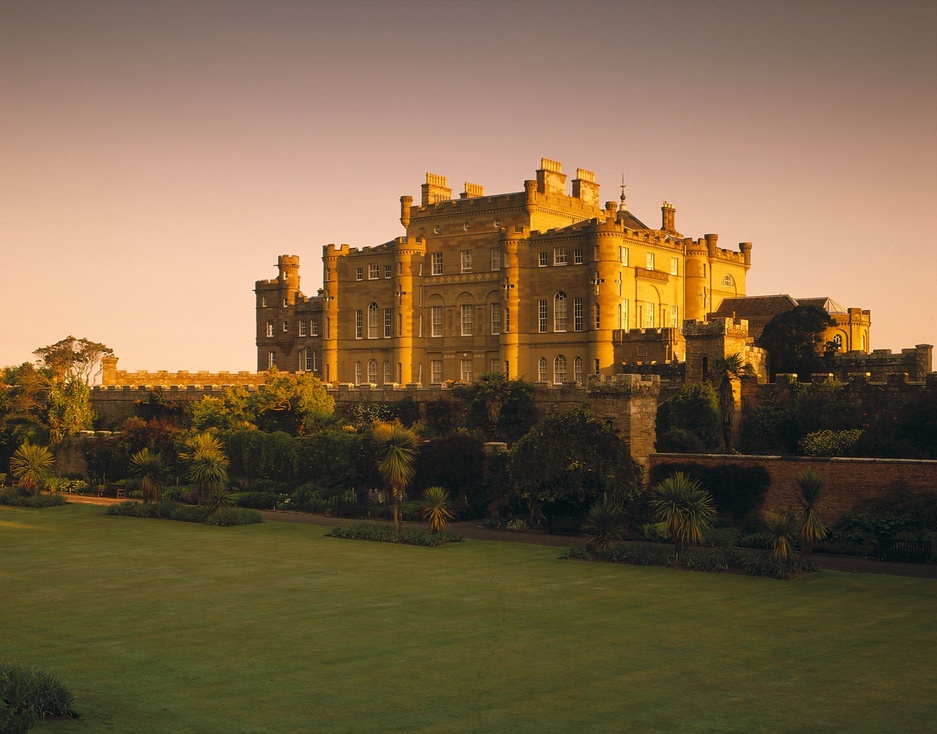
Culzean Castle
The castle features Adam's masterpiece oval staircase, fine collections of paintings and furniture, and rooms filled with treasures telling stories of people who lived here. From 1972 until 2015, an illustration of the castle appeared on Royal Bank of Scotland five-pound notes. The surrounding country park includes extensive gardens, woodland, beaches, secret follies, and new Adventure Cove and Wild Woodland play areas.
– More Photos –
Stayokay Domburg, Netherlands
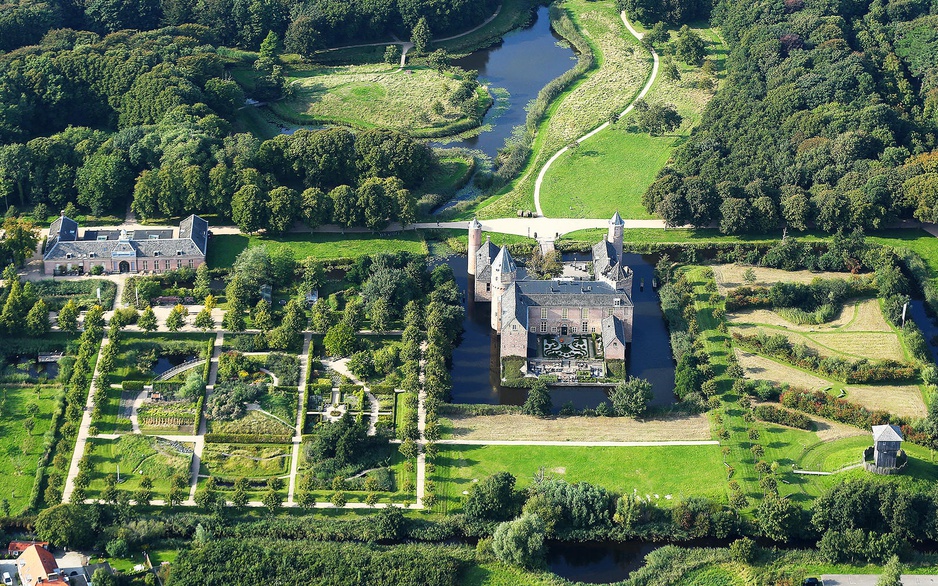
Stayokay Domburg
This is castle accommodation with a twist – a hostel experience in Westhove Castle, a genuine 13th-century fortress complete with turrets and a moat. Located in Zeeland, the castle sits within walking distance of the beach, delightfully positioned between forest and dunes.
The castle has been fully renovated while retaining its nostalgic atmosphere. Rooms are located in the castle itself or in one of two coach houses, all with en-suite facilities. Complimentary breakfast is served in the dining hall every morning, and there's a cozy bar plus a terrace on the water with outstanding views.
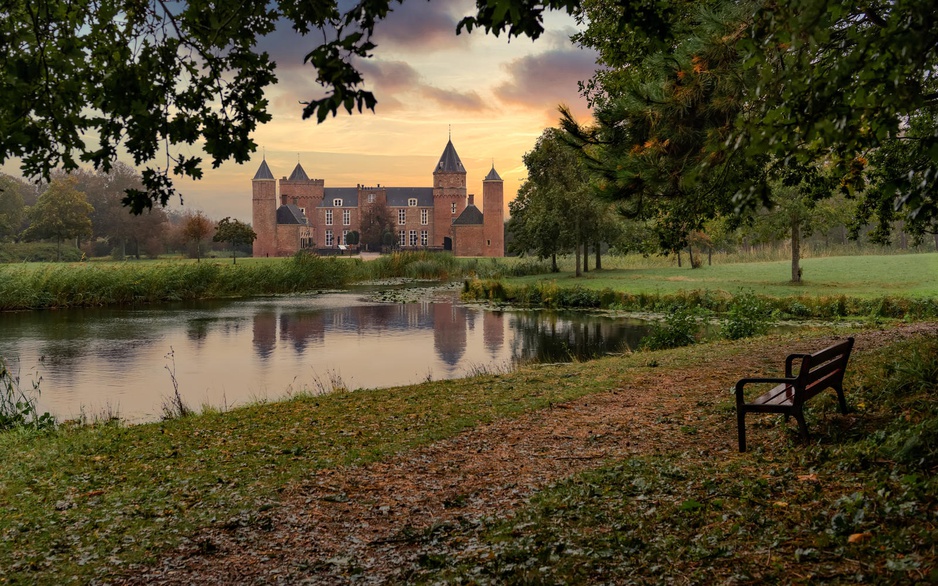
Stayokay Domburg
Domburg sits on the Zeeland coastline, famous for clean beaches and the most hours of sunshine in the entire Netherlands. The adjacent Terra Maris museum offers insights into the landscape. This represents affordable castle living – you can rent bikes at reception to explore like a local, and the hostel uses as many organic products as possible, with its own herb garden.
– More Photos –
Burg Colmberg, Germany
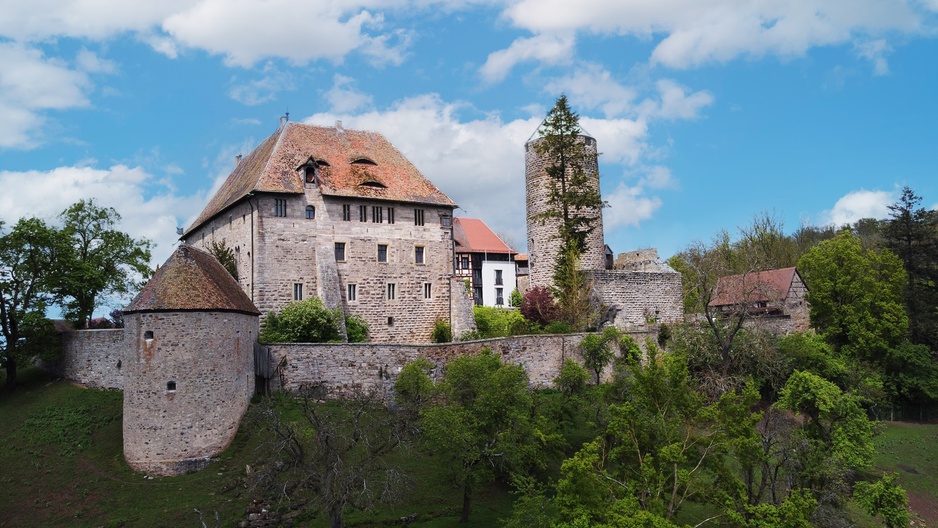
Burg Colmberg
This Franconian castle sits on a hill above the town of Colmberg in northern Bavaria, directly on both the Romantic Road and the Castle Road. Dating back to 1318, it remained in Hohenzollern possession for nearly 500 years. The castle's history is legitimately dramatic – in 1407, it became the gathering point for a 10,000-strong army led by Burgrave Frederick VI of Nuremberg during conflict with Rothenburg ob der Tauber.
Frederick VI later moved his main residence to Colmberg Castle due to lower costs compared to Cadolzburg or Nuremberg. After successfully campaigning against the Turks and saving King Sigismund of Hungary, Frederick was granted the title of Margrave and Kurfürst of Brandenburg in 1415. He died at the castle in 1440, and it became the widow's seat of his wife Elisabeth of Bavaria-Landshut ("Beautiful Else"). Pictures of the famous couple can still be found in the castle chapel.
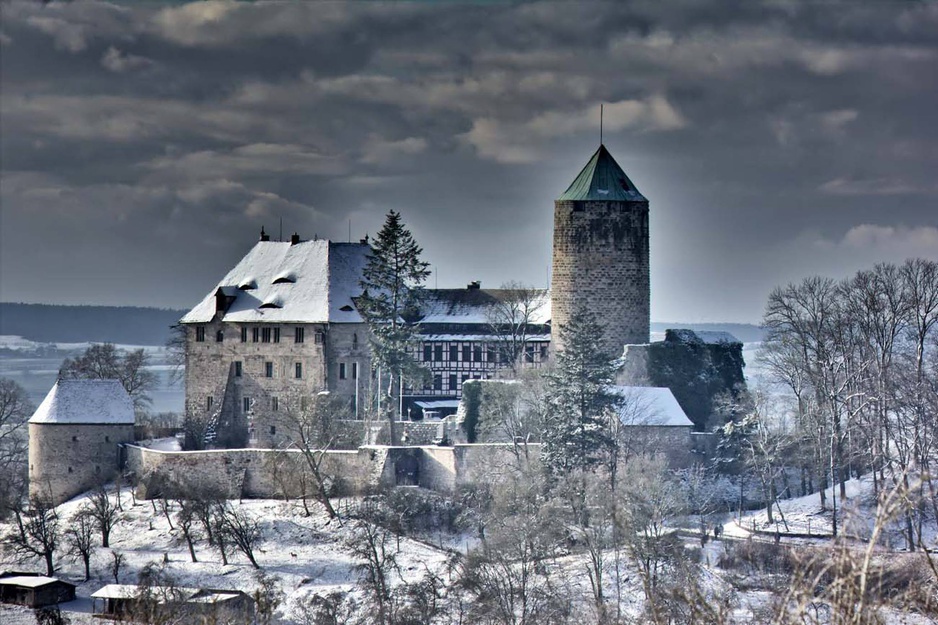
Burg Colmberg
The well-fortified walls and moats withstood many attacks, including during the Peasants' War and Thirty Years' War. The 35-meter-high round bergfried (keep) features walls up to six meters thick made of buckled ashlars with holes. The castle now operates as a hotel with a medieval-style restaurant serving hearty traditional Franconian and Bavarian food. The rooms are original castle spaces with historical touches – sturdy old walls, medieval-style windows, wooden beams.
– More Photos –
Schloss Lieser, Germany
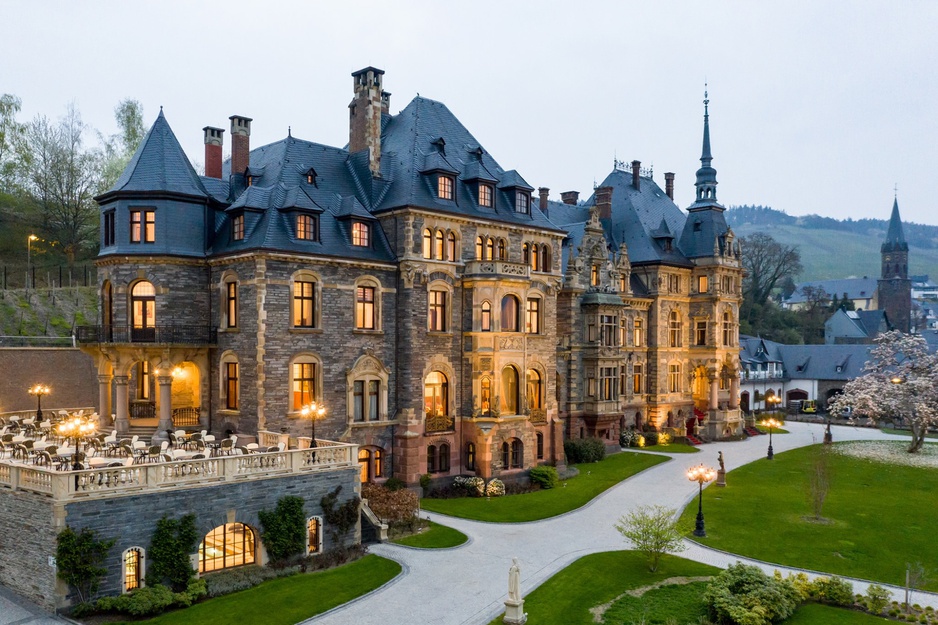
Schloss Lieser, Autograph Collection
This striking 19th-century castle in the Mosel Valley was designed by architect Heinrich Theodor Schmidt between 1884-1887 as a residence for winery owner Eduard Puricelli's family. The castle consists of two components – the older part in Neo-Renaissance forms and the younger part in Art Nouveau – and now houses a 49-room Autograph Hotel.
The building incorporates unique architectural features, including an octagonal hall based on Italian villas from the 16th and 17th centuries. The stairwell features eight large pilasters with painted landscapes and architectural motifs from the Mosel region, created by Karl Julius Grätz. The castle's position directly on the riverbank, surrounded by vineyards, offers timeless escape.
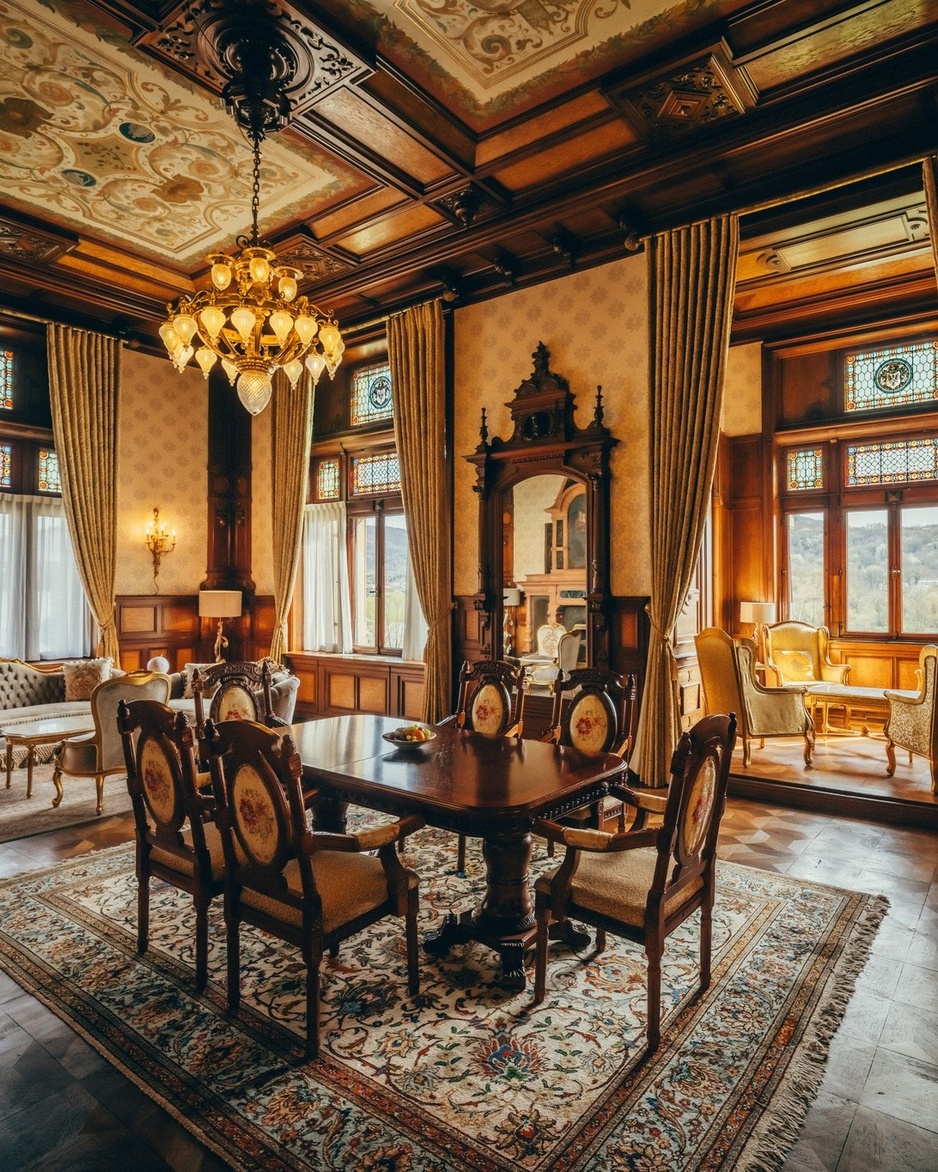
Schloss Lieser, Autograph Collection - Emperor Suite
The castle chapel is a building on its own, with wall paintings by Grätz and glass paintings by Binsfeld and Janssen. The mosaic floor with figural representations was designed by the architect and produced in Mettlach. You can enjoy locally inspired cuisine paired with the region's renowned Riesling wines in the restaurant or on the terrace overlooking the Mosel River, then unwind in the luxury spa.
– More Photos –
Pousada Castelo de Óbidos, Portugal
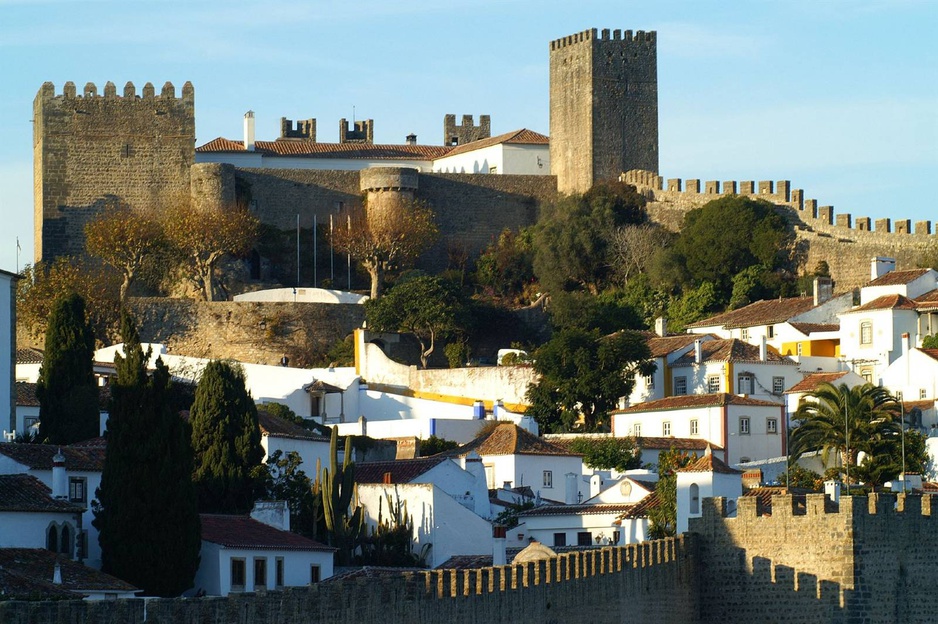
Pousada Castelo de Óbidos
Since 1951, this pousada has been housed in the castle of medieval Óbidos, marking the beginning of exploiting classified heritage by Pousadas de Portugal. Located in Vila de Óbidos, one of Portugal's seven wonders, the castle dates back to the 8th century when it was built by Muslim peoples.
The castle was given as a wedding present by King D. Dinis to Queen Santa Isabel during their 1282 wedding that took place on site – making it one of the most romantic castle hotels in Europe. You can stay in the castle itself for an authentic medieval experience or in Casa do Castelo (located right next to the castle) for something closer to living in town.
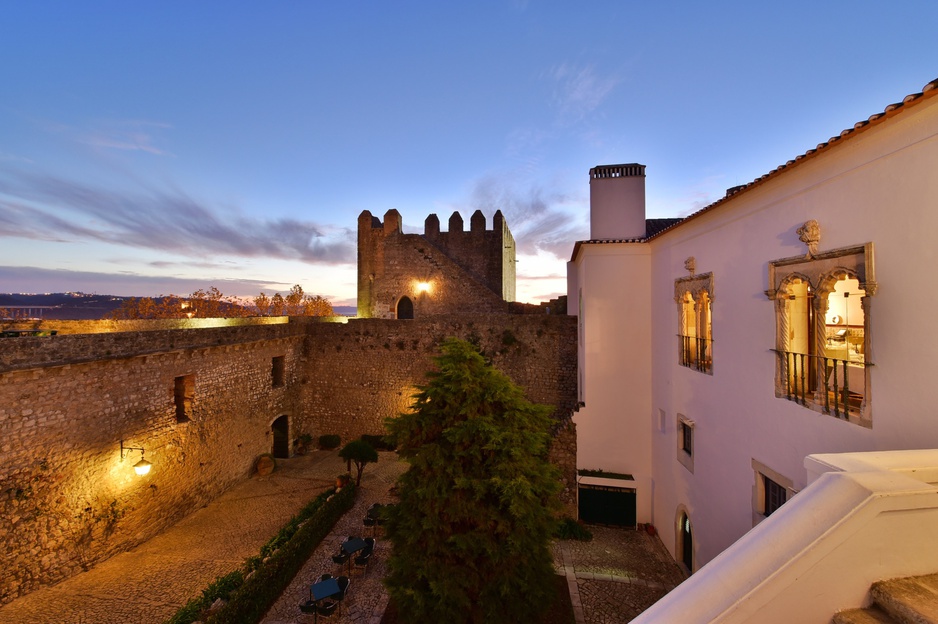
Pousada Castelo de Óbidos
The stone terrace where you can relax with wine is called Porta da Traição – the Gate of Betrayal, referring to how Christian forces conquered the castle in 1148 through this very entrance. Chef Cláudia Santiago creates delicious recipes using juicy fruits from fertile Western lands, seasonal vegetables, freshly caught coastal fish, and traditional meats. The village of Óbidos, with its wine bars and cafés, is just a short stroll away.
– More Photos –
Castello di Petroia, Italy
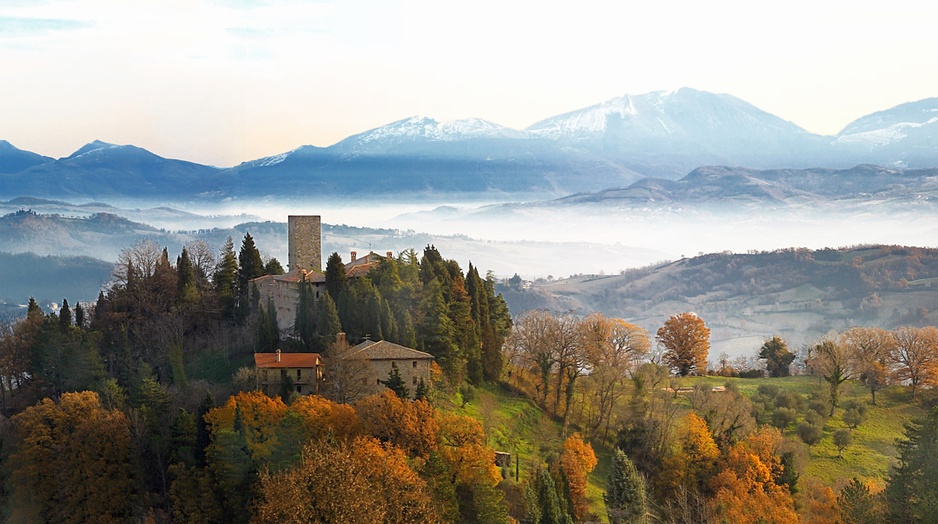
Castello di Petroia
This 12th-century medieval fortress perches on an Umbrian hillside between Perugia, Assisi, and Gubbio. Its origins trace to 1072, when the independent town of Gubbio built castles to protect its territories. On June 7, 1422, the young Elisabetta degli Accomanducci gave birth here to Federico da Montefeltro, who became the famous Duke of Urbino and one of Italy's most important Renaissance warlords.
The castle changed hands frequently over centuries, owned by many noble families. During World War II, a museum repository was established here to house collections looted from Nazi-occupied countries. The last owner, Prince Ludwig von Hesse and bei Rhein, also moved his art collection here from Darmstadt.
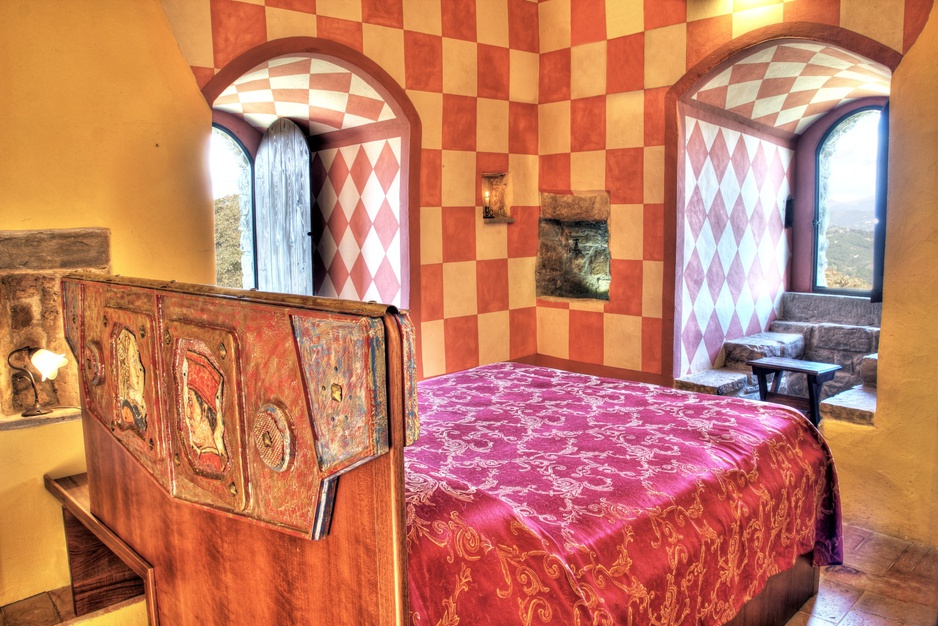
Castello di Petroia
After years of stagnation, restoration work began in 2009, and the castle hotel opened in October 2014. The Medieval Tower is the most ancient structure, climbing 15 meters with a breathtaking panoramic terrace at the very top overlooking the Apennine mountains. The Royal Suite contains 19th-century elements while the Renaissance Suite preserves 16th-century paintings. You're surrounded only by woods and green, with endless landscapes and walking trails – and the castle provides a base for experiencing Umbria's enchanting medieval stone towns.
– More Photos –
Gstaad Palace, Switzerland
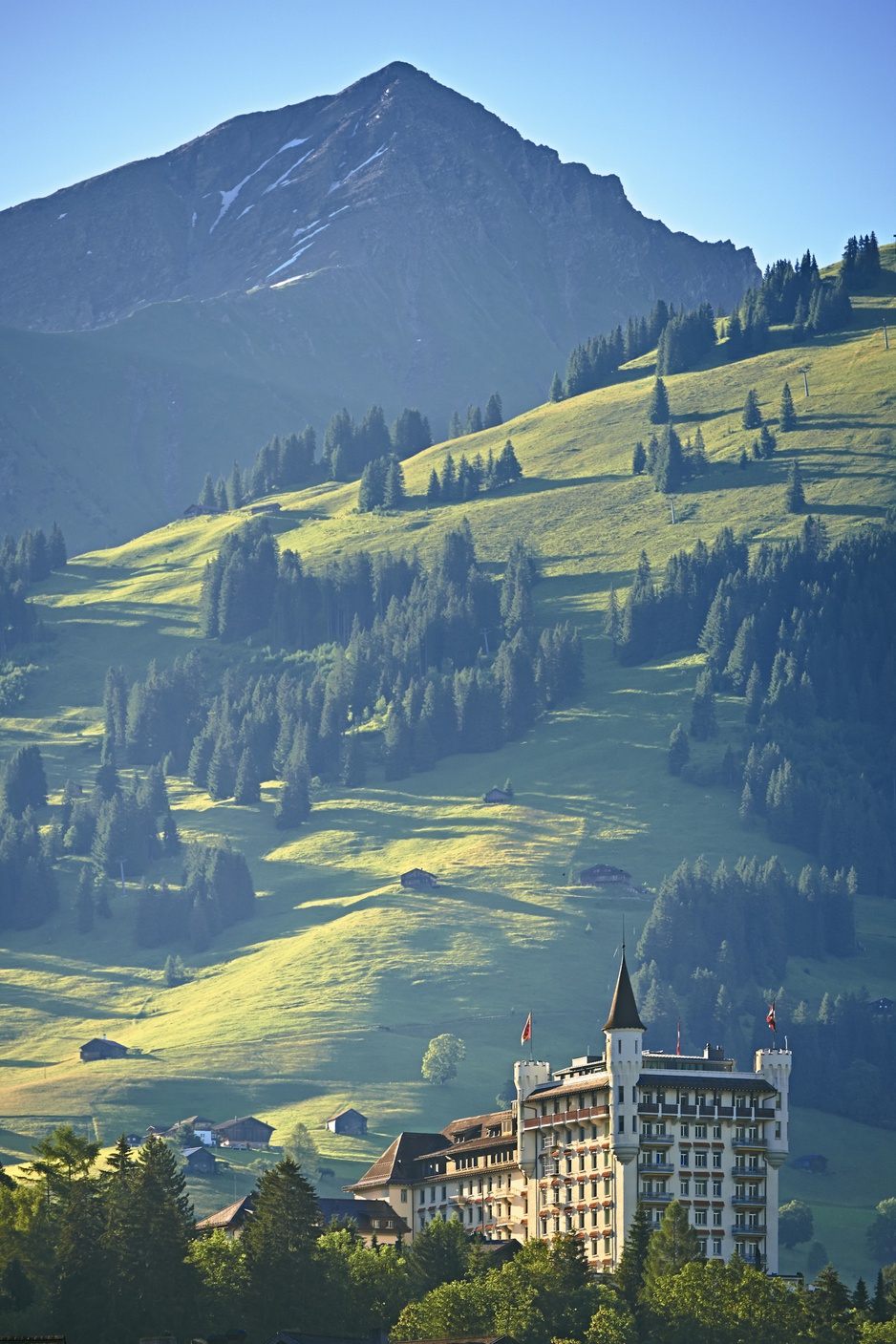
Gstaad Palace
Towering above the alpine village of Gstaad like a fairy-tale castle, this landmark hotel celebrated its 110th birthday recently. Built in Swiss chalet style in 1913, it's one of the most exclusive properties in one of the world's most exclusive ski areas – a member of The Leading Hotels of the World.
The palace has been operated by the Scherz family since 1947, maintaining traditions while updating amenities. A state-of-the-art spa includes a massive granite wall cut from fifty tons of locally sourced rock. The capacious lobby bar with carved wooden pillars and enormous open fire functions as Europe's parlor for watching well-heeled travelers. Vintage photos on walls portray famous guests including Roger Moore and Louis Armstrong.
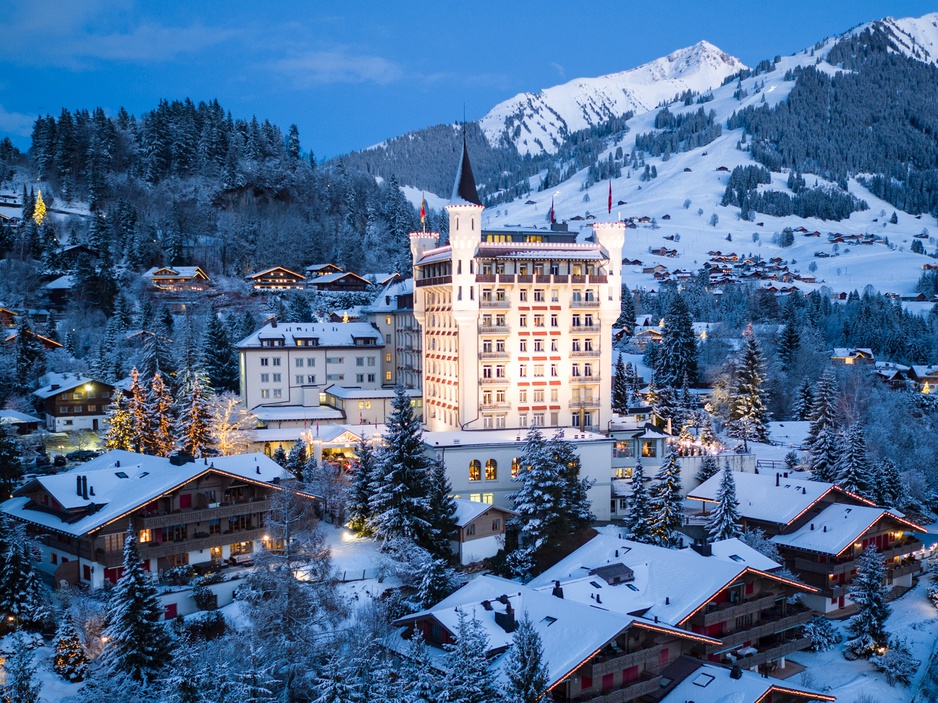
Gstaad Palace
All 90 rooms come with Alpine views, many with balconies or terraces. The Grill restaurant features theatrical table service – smoked salmon carved, langoustine deshelled, steaks flambéed with panache. Chef Franz Faeh, who originates from Gstaad but spent over a decade in Asia, creates menus blending European and Asian influences. The hotel opens only for select months through winter's ski season and summer's height – which feels appropriate for a place of this pedigree. In past days, as in the present, the most discerning travelers don't travel in the off-season.

